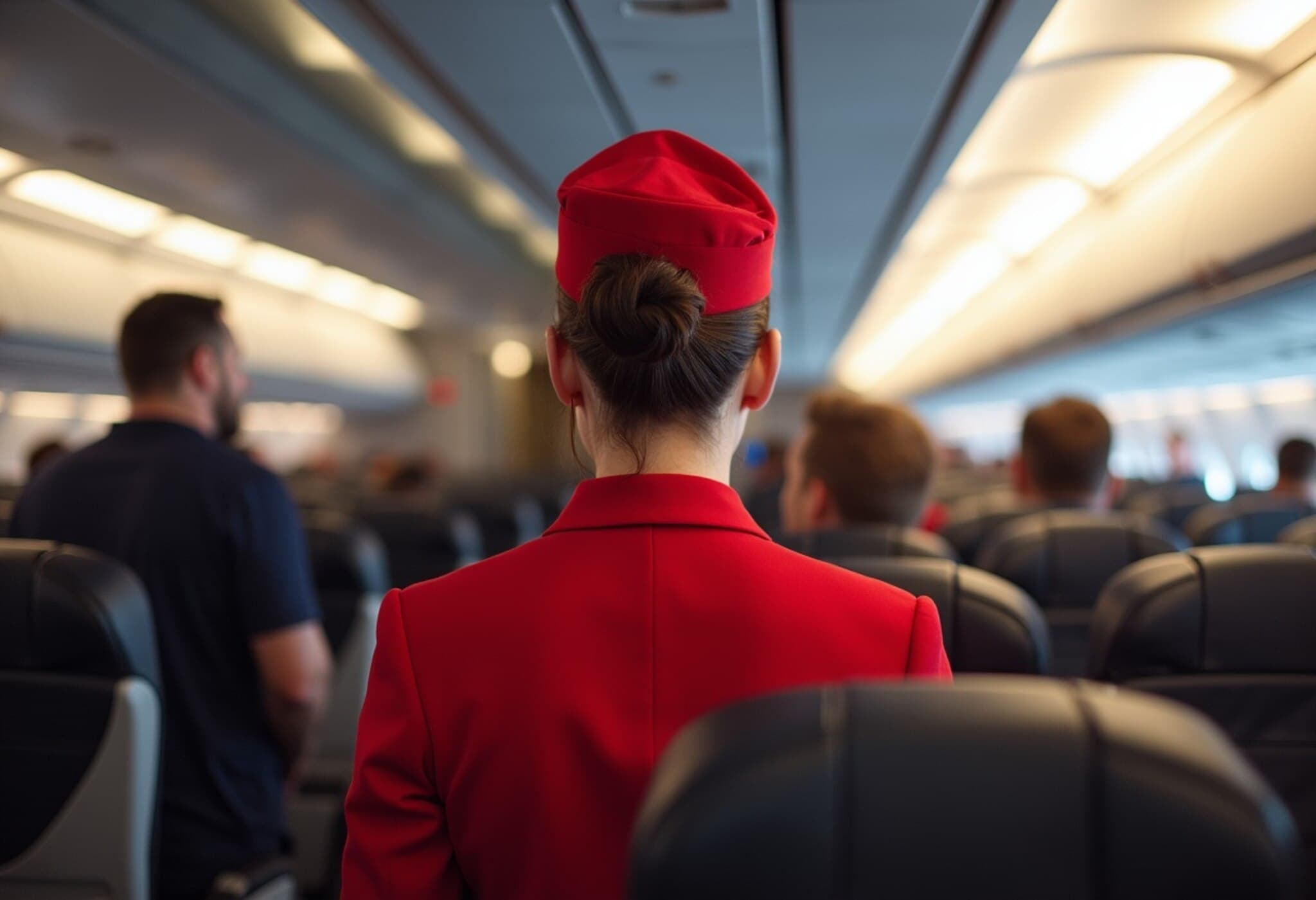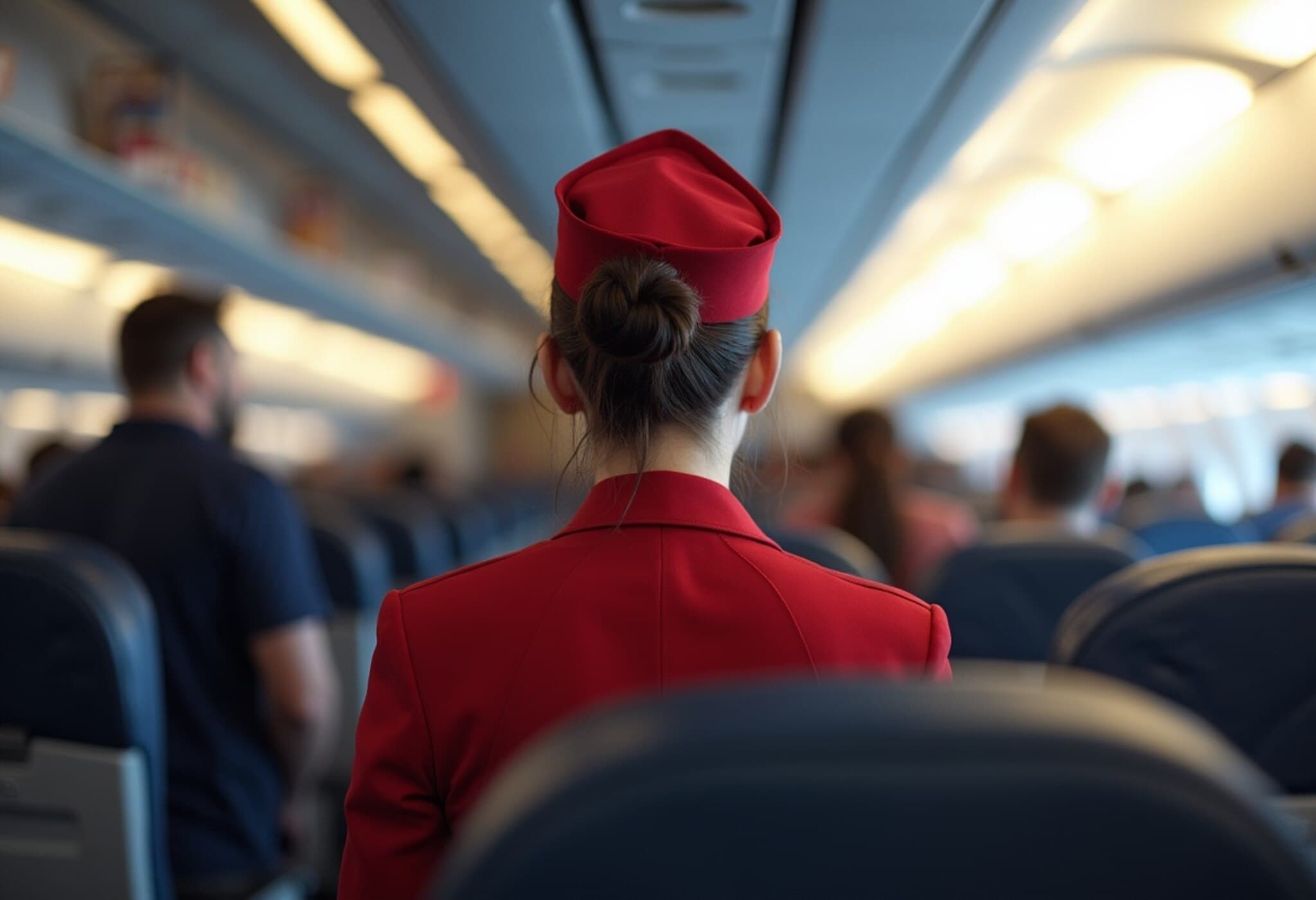Air Canada Prepares for Flight Disruptions as Flight Attendants Plan Strike
Canada's largest airline, Air Canada, has announced that it will begin suspending flight operations starting Thursday in anticipation of a planned 72-hour strike by its flight attendants this weekend. The airline expects a progressive series of cancellations on Thursday and Friday, potentially culminating in a complete operational halt over the weekend for both Air Canada and its subsidiary, Air Canada Rouge.
Background: Labour Dispute Between Air Canada and Flight Attendants’ Union
The strike notice was issued by the Canadian Union of Public Employees (CUPE), representing nearly 10,000 Air Canada flight attendants, after months of stalled negotiations over wages and working conditions. In a decisive vote, 99.7% of union members supported the strike action, underscoring their strong dissatisfaction with current contract talks.
CUPE's president for Air Canada flight attendants, Wesley Lesosky, highlighted the union’s efforts: “For the past nine months, we have put forward solid, data-driven proposals on wages and unpaid work, all rooted in fairness and industry standards.” He expressed frustration with the airline’s response, stating, “Air Canada’s response to our proposals makes one thing clear: they are not interested in resolving these critical issues.”
Air Canada’s Response: Lockout Notices and Contingency Plans
In response to the impending strike notice, Air Canada issued a 72-hour lockout notice effective August 16, signaling the initiation of an orderly shutdown to limit operational chaos and protect the company's assets and employees. The airline cited the union’s demands for “exorbitant increases” and noted the union's refusal to accept third-party arbitration, which Air Canada viewed as a potential path to resolution.
On the company’s official X (formerly Twitter) page, Air Canada stated: “To address ongoing labour uncertainty following strike notice by CUPE, Air Canada’s flight attendant union, a lock out notice was issued to CUPE today, effective Aug. 16. We will begin implementing our contingency plan to gradually begin an orderly wind down of operations.”
Wide-Ranging Impact on Passengers and the Aviation Industry
Air Canada operates a fleet of 259 aircraft across 64 countries and serves approximately 130,000 customers daily, including 25,000 Canadians, many of whom will experience travel disruptions during this peak summer travel period. The strike threat and subsequent relief efforts highlight the fragility of airline operations amid labour disputes, especially as global air travel rebounds from the pandemic.
Experts note this confrontation not only throws a wrench in plans for leisure and business travelers but may also ripple through Canada’s tourism economy and related service sectors. Additionally, the airline’s preemptive lockout and gradual flight cancellations strategize minimizing chaos but may create logistical headaches for passengers scrambling to adjust their travel plans.
What’s Next? Industry Implications and the Road Ahead
- Labour Relations: The stalemate at Air Canada reflects a broader trend toward increased labour assertiveness in the post-pandemic workplace, with workers demanding fair compensation aligned with rising living costs.
- Economic Impact: Potential flight cancellations during the height of summer travel could cost not only the airline but also ripple through Canada's broader travel and hospitality sectors.
- Consumer Rights and Support: Passengers should monitor official announcements and consider travel insurance or alternative arrangements in case of extended disruptions.
- Potential for Resolution: A willingness to engage in third-party arbitration could break the deadlock and restore operations, but this remains contingent on both parties’ cooperation.
Expert Commentary
From a broader policy perspective, this strike spotlights the challenges airlines face balancing operational costs with fair labour conditions. Economists argue that successful mediation is essential to prevent further erosion of consumer confidence in air travel. Furthermore, this event underscores the importance of adaptable contingency planning in critical infrastructure sectors.
Labour historians might see this moment as emblematic of a resurgence in organized workforce actions, as employees seek to reclaim negotiating power after years of pandemic uncertainty and inflationary pressures.
Editor’s Note
The unfolding labour dispute at Air Canada raises several critical questions: How far is too far in wage and benefit negotiations when a vital sector such as aviation is at stake? As the airline implements a gradual shutdown, the ripple effect on Canadian tourism and global travel underscores the intricate interdependence between labour relations and economic vitality. Readers and travelers are encouraged to stay informed and prepared for potential disruptions while policymakers and industry leaders weigh paths toward sustainable labour agreements.



















